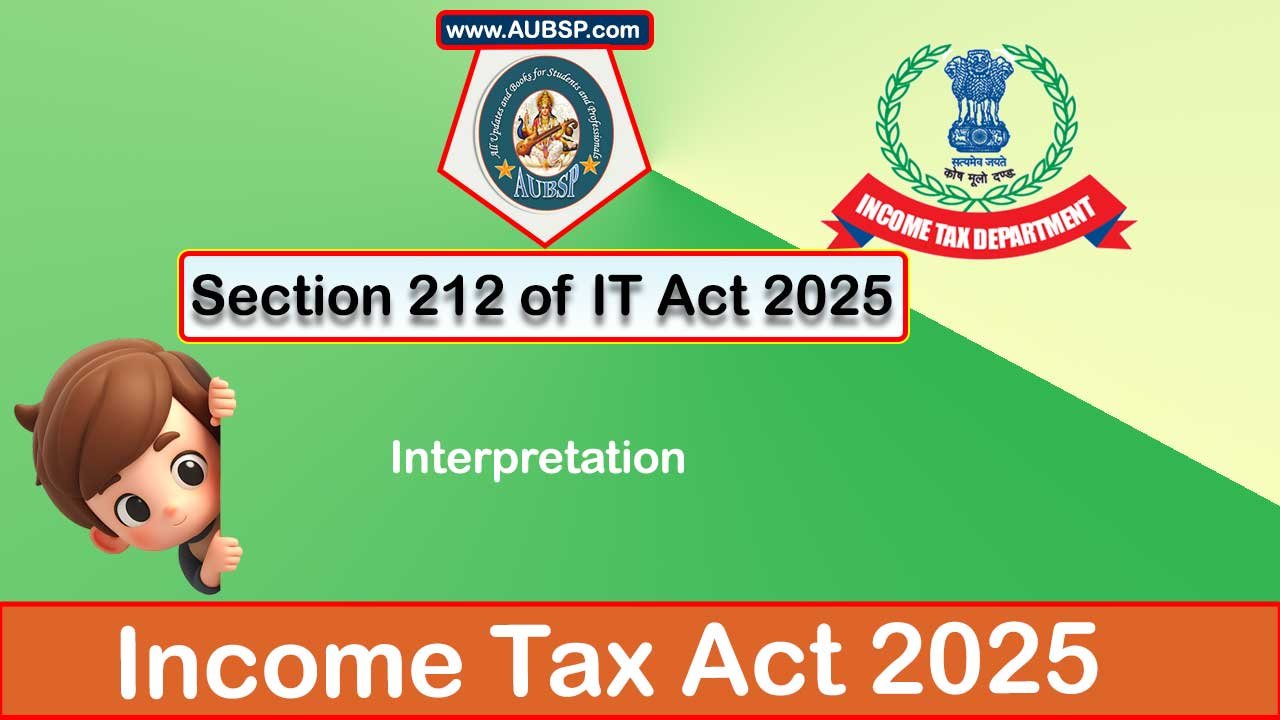Interpretation
[Section-212 as per the Income Tax Act, 2025 (this Act) w.e.f. 1st April, 2026.]
- (a) “foreign exchange asset” means any specified asset which the assessee has acquired or purchased with, or subscribed to in, convertible foreign exchange;
- (b) “investment income” means any income derived from a foreign exchange asset;
- (c) “long-term capital gains” means income chargeable under the head “Capital gains” relating to a capital asset, being a foreign exchange asset which is not a short-term capital asset;
- (d) “non-resident Indian” means an individual, who is not a resident and is—
- (i) a citizen of India; or
- (ii) a person of Indian origin;
- (e) “specified asset” means any of the following assets:—
- (i) shares in an Indian company; or
- (ii) debentures issued by an Indian company which is not a private company as defined in the Companies Act, 2013; or
- (iii) deposits with an Indian company which is not a private company as defined in the Companies Act, 2013; or
- (iv) any security of the Central Government as defined in section 2(c) of the Public Debt Act, 1944; or
- (v) such other assets as the Central Government may specify in this behalf by notification.
FAQs on Section 212 of Income Tax Act 2025
What is a “foreign exchange asset” as per Section 212 of the Income Tax Act, 2025?
A foreign exchange asset refers to a specified asset that the assessee has acquired, purchased, or subscribed to using convertible foreign exchange.
What does the term “investment income” mean under Section 212?
Investment income means any income that is derived from a foreign exchange asset.
What are “long-term capital gains” in the context of this section?
Long-term capital gains refer to income chargeable under the head “Capital gains” that arise from a foreign exchange asset which is not classified as a short-term capital asset.
Who qualifies as a “non-resident Indian” under this section?
A non-resident Indian is an individual who is not a resident and is either a citizen of India or a person of Indian origin.
What are considered “specified assets” for the purpose of this section?
Specified assets include:
(i) shares in an Indian company;
(ii) debentures issued by an Indian company which is not a private company as defined in the Companies Act, 2013;
(iii) deposits with an Indian company which is not a private company as defined in the Companies Act, 2013;
(iv) any security of the Central Government as defined in section 2(c) of the Public Debt Act, 1944;
(v) other assets as specified by the Central Government via notification.
Is the definition of “foreign exchange asset” limited only to shares?
No, it includes any specified asset acquired or subscribed to in convertible foreign exchange, which also includes debentures, deposits, government securities, and any other notified assets.
Can the Central Government modify the list of specified assets?
Yes, the Central Government has the authority to notify additional assets to be included in the list of specified assets.
What currency must be used to acquire a foreign exchange asset?
A foreign exchange asset must be acquired, purchased, or subscribed to in convertible foreign exchange.
Does the term “investment income” include interest or dividend from specified assets?
Yes, as long as the income is derived from a foreign exchange asset, it qualifies as investment income.


